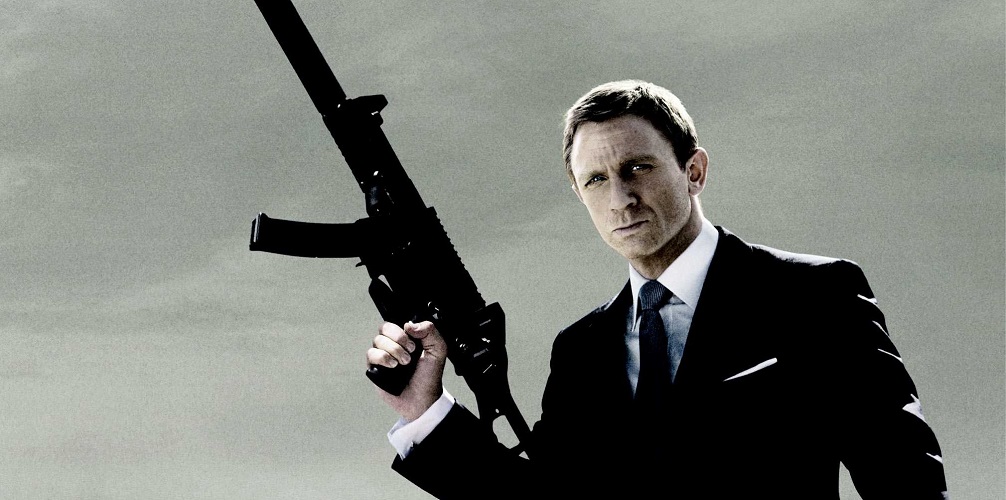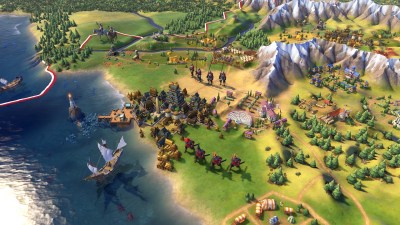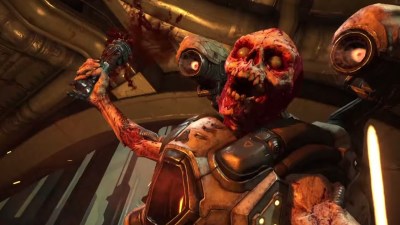In 2006 cinema goers looking to see the first half of the Bond origin duology (Casino Royale) were confronted by a new 007 - British actor Daniel Craig.
As Craig uttered the words “Bond, James Bond” the audience’s reaction was predictably split. Women swooned, men groaned. Your reaction to Quantum of Solace: The Game is likely to be the latter. That isn’t because Quantum of Solace: the Game is the first Bond game to feature Craig’s likeness; there’s a lot that the game does wrong, and little that it does right.
After acquiring the Bond license from EA in 2006, Activision went about creating the first Bond game to appear on the PlayStation 3 and Xbox 360. Seeing as no game had been timed to coincide with Casino Royale’s theatrical release, Activision exercised their license to kill, (two birds with one stone!) which led to scenes from both Casino Royale and the sequel Quantum of Solace being recreated to pad out the experience. More so, behind it all was the developer of the Call of Duty B-games, Treyarch.
What Treyarch cobbled together is a hybrid first-person / third-person shooter that, during its short five hour playtime, pushes players through a series of disjointed shooting galleries. Quantum of Solace aims to consolidate the best of two shooter genres, but instead ends up being a textbook example of how not to do either of them.
Played primarily from a first-person view, the perspective switches to third-person whenever players take cover - in a similar fashion to Deus Ex: Human Revolution - allowing you to pop out and take shots, or blindfire vaguely in the enemies’ direction. You can even move between and vault over cover seamlessly… at least, that’s what the game would have you believe.
In practice, the option to move between adjacent cover rarely appears or functions, leaving the player to peel Bond off brickwork as if he were made of velcro. And if he isn’t aligned with the very edge of cover, sometimes he won’t pop-out and shoot. Sometimes he will. It’s a similar story with the grenade button, which isn’t as responsive as we would like. Apparently the technique of managing the sometimes fickle control scheme is classified information.
But even when the game does control as expected, it’s far from sprightly. For a start, sprinting locks out the ability to clamber over objects. As does taking cover itself; nestle Bond behind a waist-high wall and the triangle button will cease to function. There’s something tension-killing about having to methodically stand-up, position yourself in front of cover and press a button to clamber over it.
As a result, options dwindle to either being pinned behind a single wall - systematically picking enemies off until the area is clear - or working around the stilted movement scheme. In a game-wide trend, options don’t beget meaningful choice; Quantum of Solace either makes choices for the player or overcompensates with options, making the act of choice redundant.
Take weapons for example: in one level, Bond is forced to give up his sniper rifle simply to maintain game balance - the game makes that choice, offering unconvincing narrative explanation for doing so. In another sequence he has to take down a helicopter and is conveniently presented with a rocket launcher - the game cajoles the player into using it. One shootout takes place at the foot of a staircase with corridors running under either side of it – the perfect set-up to sleuth around and flank the enemy, except they both run into dead-ends. The lack of options means the only “choice” open to the player is to storm the enemy from the front.
Additionally, at times when the player is given options, they’re either pointless or actually reduce the number of meaningful choices. For example, Bond has the option to carry up to three firearms at a time, which is enough to carry most of the small, select weapon range available in any given stage. Agonizing over weapon combinations and attack strategy becomes a non-factor. Likewise there’s an option to hold down the grenade button, delaying deployment. But neither doing so nor altering throw pitch does much to change where explosives land.
There’s the distinct impression that the game is calling the shots rather than the player, sometimes literally. In one somber stealth sequence enemy patrols broke perfect silence, “This is the roof, we have shots fired,” at which point the enemy opens fire on Bond as swift retaliation against their imagined gunfire. Quantum of Solace wants you to play it a specific way, and it has no qualms fabricating game scenarios to get you to do so.
In contrast there are times when Quantum of Solace seemingly shows dynamic brilliance. Enemies will tactically take cover against walled sections of elevated walkways; shoot them down and they’ll fall over the walkway railings, screaming and firing madly as they flail to their deaths. But do this a few times and it becomes evident that the AI is simply moving to the assigned point necessary to set up the canned death animation spectacle.
Between the lack of meaningful player choice, dictated firefights, and premade spectacles, Quantum of Solace comes across like a carnival shooting gallery; enemies are typically felled with one trigger squeeze as if they’re clay pigeons.
It’s unfortunate that a game so fixated with converting options into player choices is limited to almost dictated weapon load-outs of standard FPS weaponry. Fortunately this isn’t a big problem as Quantum of Solace isn’t based on a property well known for its inventive gadg- wait; never mind.
Herein lies the other major flaw with Quantum of Solace; it’s a Bond videogame that fails to distill the quintessential essence of Bond into videogame form. Instead, it falls into an uninspired rut. Achievements/trophies are named after the Bond films of yesteryear: clearing one level unlocks “From Russia with Love” and it would have been a nice bit of fan service, had the level not taken place in Bolivia, South America. That’s not clever, it’s not even witty; it’s a hollow, almost offensively superficial implementation of the Bond license.
To add insult to injury Quantum of Solace isn’t even well presented. The events of the game take place from the perspective of a narrator whose identity is withheld until the end of the game. He has a selective interest in key Bond episodes, and as such the game jumps between the episodes in question. Without knowing the narrators’ identity or motivations, the disparate episodes don’t appear to be linked by any compelling over-arching narrative thread. This creates mild confusion and complete apathy.
Even the micro-stories told in the game are unconvincing. In one sequence Bond runs through a level trying to apprehend a bomb maker. After the level ends it reveals that the bomb maker is killed in a huge explosion while fleeing. It’s an important event that doesn’t happen in-game, and doesn’t even happen in a cutscene; it’s simply referenced and the player is told to accept it. The same disjointed presentation plagues the rest of the game. You’ll be chasing a van on foot one moment and the stage will end, fading out, as if the game has decided you’re done.
It’s interesting that an on-screen prompt to skip is omnipresent during cutscenes, perhaps telling us that the developers themselves knew how un-engaging the story is. Maybe that’s why characters mouths are conveniently off-screen during most cutscenes; hidden in a kind of less cheeky version of genital censorship. The few times characters do flap gums in the artifact-laden compressed cutscene videos, they animate with the grace of a goldfish attempting a tongue twister.
Quantum of Solace: The Game fails to provide more than the most superficial Bond-themed experience, and not because it’s preoccupied with any laudable experimentation of its own. It fails to tell an intuitively coherent story, but to be honest we’re not entirely sure it ever made a concerted effort to begin with. At best, it’s a basic shooter with a rudimentary multiplayer mode – a mode that we couldn’t review, because no one is playing it anymore (if they ever did in the first place). In a world of Gears of War, Call of Duty and Uncharted - all better games with unique hooks - why would they?



